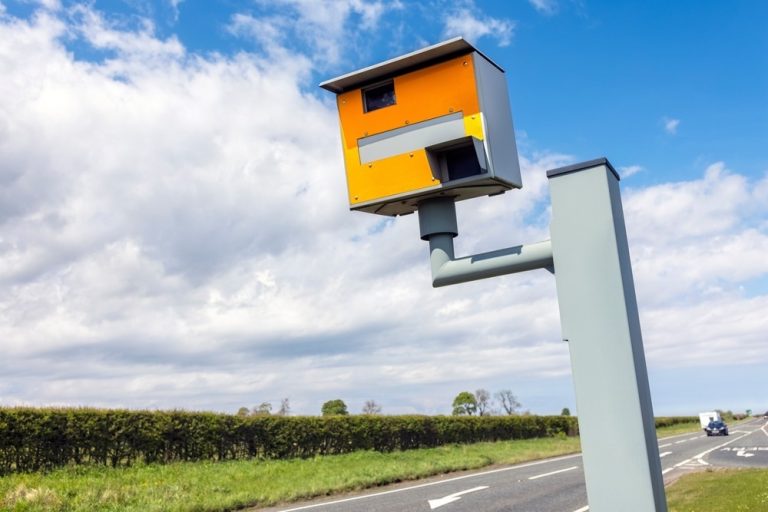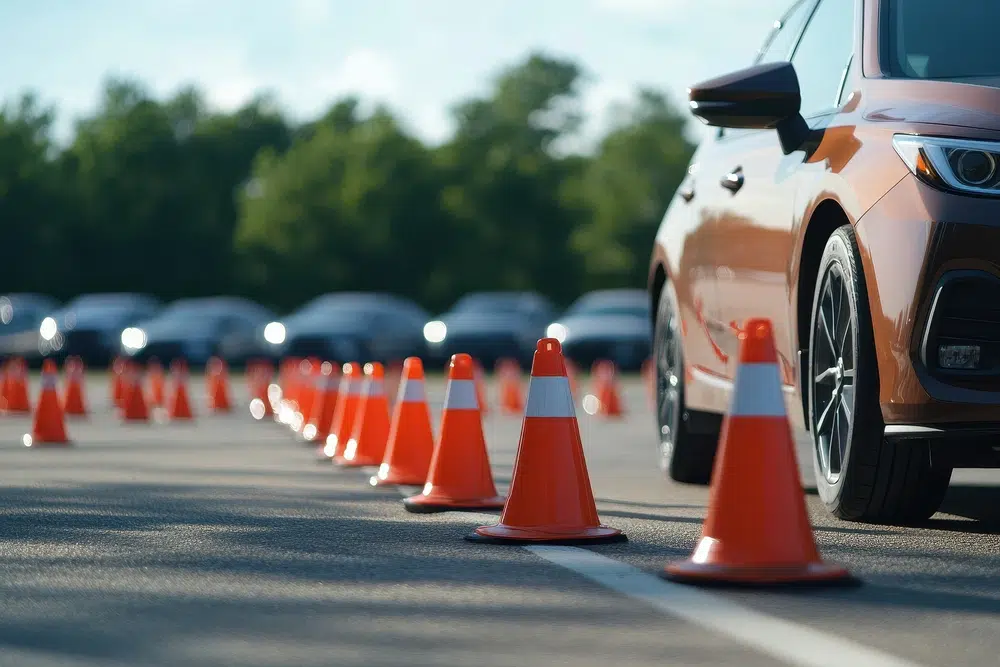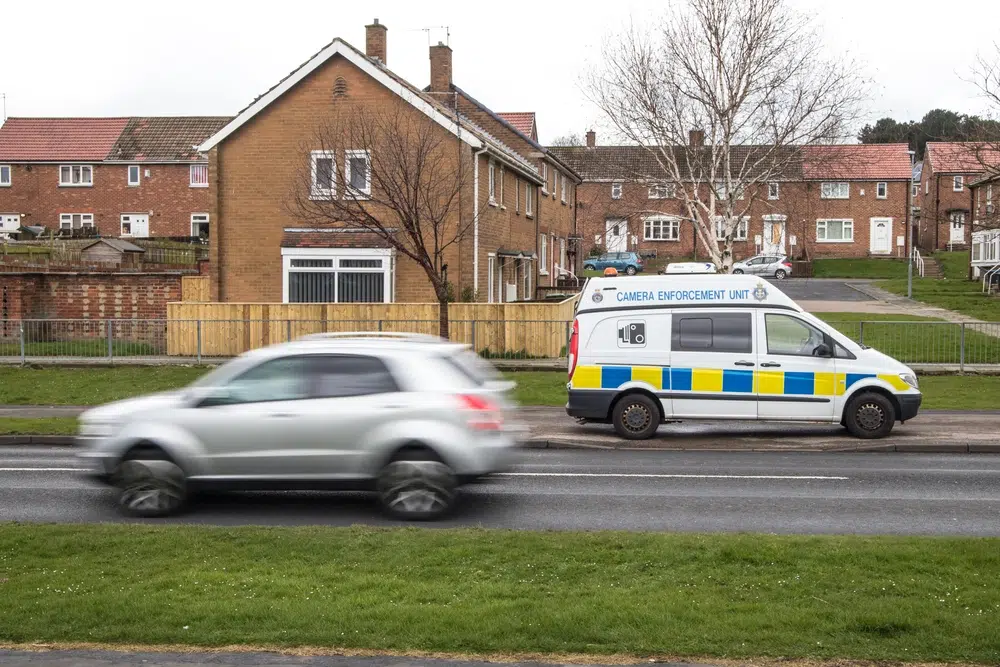There are around 3,600 fixed-speed cameras in the UK. But that doesn’t stop millions of motorists from breaking the speed limit every year.
Since they first appeared on Britain’s roads 30 years ago, speed cameras have caused controversy. Opponents claim they are there to generate revenue rather than improve road safety, as drivers caught breaking the speed limit must pay hefty fines of at least £100.
Supporters, however, say that they improve safety and that the money that’s collected in fees is used to put back into repairing potholes, improving traffic signals, and running speed awareness courses.
If you’ve been caught speeding, you may have been offered to take a speed awareness course instead of being landed with a fine and three penalty points on your license. In this article, we’ll answer the question, “what is a speed awareness course?” whilst running you through all the specifics you may need to know.
Also known as “driver awareness courses”, speed awareness courses are sometimes offered to motorists who have committed minor driving offences.
Rather than receiving penalty points on your licence, a fine, and a court summons, you may be able to attend one of these courses, where you will learn how to be a better driver.
Continue reading to find out more about speed awareness courses.
- What happens at a speed awareness course?
- How do I book a speed awareness course?
- Who is eligible for a speed awareness course?
- Will doing a speed awareness course affect my car insurance?
- What are the benefits of doing a speed awareness course?
- Can you fail a speed awareness course?
- How much does a speed awareness course cost?
- Summary
What happens at a speed awareness course?
Speed awareness courses are designed to educate drivers about the consequences of speeding and prevent them from becoming repeat offenders. For some drivers, it’s preferable to receiving penalty points, a fine, and a court summons.
Unless you’re taking the course online, you’ll usually attend a classroom workshop where 15 to 25 attendees will all learn together.
How long is a speed awareness course?
You can expect the course duration to be between two and four hours and, as mentioned in the previous section, they are run by independent companies, such as the AA. They can also be offered by some local police forces or companies that work with local forces.
What is the criteria for a speed awareness course?
Drivers are taught about the impact that speeding can have on other road users and will focus on refreshing their knowledge of the highway code, addressing topics such as:
- Stopping distances for how fast you’re going
- Awareness of your surroundings
- The speed limits of different road types
- The possible consequences of speeding
The course also teaches safe driving practices, aims to increase your awareness of hazards, obstacles, and other dangers, and advises on how to stay safe around other drivers and in all conditions.
You will also be required to consider why you broke the speed limit and the course leader will encourage you to share your experience with the rest of the group.
While you don’t need to take and pass an exam or do any actual driving, you must display a positive attitude throughout the duration of course by participating in group discussions and interacting with the course leader.
How do I book a speed awareness course?
To book a speed awareness course, you will need:
- A valid UK driving licence
- Your course offer letter sent to you by the police
- Your payment details
Next, head to the UK Road Offender Education (UKROEd) website and take the following steps:
- To register, you will need to enter the reference number and pin provided in your course offer letter.
- Enter your personal details, such as name, address, email and driving licence number
- Once registered, you will be taken to your dashboard. To book a course, click on ‘access my courses’ and choose between a virtual or physical course.
- You will then be given a list of course providers. Once you’ve selected a course, you will be taken to the course provider’s website
- Once you’ve chosen the date and time, and sent payment, you’re good to go. If you have any issues you should contact your course provider
Who is eligible for a speed awareness course?
If you’ve been stopped by the police for speeding or you’ve been caught by a speed camera, you will receive a Notice of Intended Prosecution and a Section 172 Notice through the post. These letters — which will usually be sent within 14 days — will give details of the offence and inform you of the consequences.
You must complete and return the Section 172 Notice, stating who the driver of the car was and in some cases, you’ll be given three options to choose from:
- Pay a fine and take three points on your licence
- Take a speed awareness course
- Attend court to settle the case
Option 2 is not necessarily available though, however, because speed awareness course eligibility is dependent on if:
- The police have offered it to you as an option
- It’s your first speeding offence or you haven’t been caught speeding in the last three years
- You didn’t commit any other offences at the same time you were caught speeding
- You were speeding within the limits that are allowed for the course (depending on the specific rules set by the prosecuting police force):
- In a 20mph speed limit – Your speed was between 24mph and 31mph
- In a 30mph speed limit – Your speed was between 35mph and 42mph
- In a 40mph speed limit – Your speed was between 46mph and 53mph
- In a 50mph speed limit – Your speed was between 57mph and 64mph
- In a 60mph speed limit – Your speed was between 68mph and 75mph
- In a 70mph speed limit – Your speed was between 79mph and 86mph
It’s important to note that even if you do meet the above criteria, you may not be offered the chance to attend a speed awareness course, as not all police forces subscribe to the programme.
If you have been caught speeding excessively, you won’t be given the opportunity to take a speed awareness course. Instead, you’ll have to pay a fine, take three points on your driving licence, and could even receive a court summons, depending on how fast you were going.
Will doing a speed awareness course affect my car insurance?
When you buy car insurance, your insurer or broker will ask you to disclose whether you have any speeding convictions or points on your driving licence that could push your premium up — and you are legally obliged to tell them the truth. If you’ve taken a speed awareness course, you will have avoided a conviction and points, however, you have still broken the Road Traffic Act and some insurers will ask you whether you’ve been on a course when you buy cover from them. If they do ask, it’s important that you answer truthfully, so you don’t risk invalidating your policy.
If you already have vehicle insurance, again, it’s a good idea to let your insurance company know that you’ve attended a speed awareness course so that your policy doesn’t become invalid. This may cause them to increase your premium as they may see you as more of a risk than a driver who hasn’t been caught speeding.
On the other hand, you may save money on your car insurance by going on a speed awareness course. Some insurers could see you as less of a risk because you’ve reviewed your knowledge of the Highway Code and have therefore become a safer driver.
What are the benefits of doing a speed awareness course?
Time constraints and inconvenience can make paying the fee and taking the points a more tempting offer than sitting through a workshop.
However, there are many benefits to attending a speed awareness course, the main one being that you don’t get points on your licence. Not only can points push the price of your car insurance up, but every time you’re caught speeding, three points are added to your licence. You could be disqualified from driving if you get 12 points within three years — or six within the first two years of passing your driving test.
Some of the other benefits of doing a speed awareness course are:
- It costs less than paying a fine
- You become a better driver
- You’re less likely to commit another motoring offence
Can you fail a speed awareness course?
While there’s no exam to take, you could fail a speed awareness course if you leave the course early, don’t complete it, or fail to actively participate. The course provider will decide whether you’ve passed or failed and will notify the police, who will store the information in the NDORS database. If you do fail, you will have to take the points, you may be summoned to court and it’s unlikely that you will be refunded the cost of the course.
How much does a speed awareness course cost?
No matter where you are in the country, you’re taught the same things on a speed awareness course. However, the cost varies depending on the police force area. This is because the organisations who provide the courses charge a different amount, although usually, it’s between £80 and £120.
While the course does cost about the same as the fine, it makes sense to take the course as you don’t receive points on your licence and some course providers will let you settle the fee in installments.
Since the COVID-19 pandemic, some drivers now have the option to take a speed awareness course online. Again, costs vary between online courses, but are typically between £80 and £90, with some as little as £73. Online courses also mean no travel costs, but you must ensure you have a good internet connection and access to video calling.
Summary
So now you should be able to answer the question, what is a speed awareness course like? If you’ve been caught speeding, you may have been given the option to take a speed awareness course instead of being landed with a fine and three penalty points on your license.
Also known as a “driver awareness course”, these courses are sometimes offered to motorists who have committed minor driving offences.
Speed awareness courses are designed to educate drivers about the consequences of speeding and prevent them from becoming repeat offenders.
Courses typically last between two and four hours and are run by independent companies, such as the AA.
Drivers are taught about the impact that speeding can have on other road users and will focus on refreshing their knowledge of the highway code. The course also teaches safe driving practices, aims to increase your awareness of hazards, obstacles and other dangers and advises on how to stay safe around other drivers and in all conditions. You will also be required to consider why you broke the speed limit and the course leader will encourage you to share your experience with the rest of the group.
Not everyone will be given the option to take a speed awareness course and you will only be eligible in the following circumstances:
- The police have offered it to you as an option
- It’s your first speeding offence or you haven’t been caught speeding in the last three years
- You didn’t commit any other driving offences at the same time you were caught speeding
- You were speeding within the limits that are allowed for the course
If you have been caught speeding excessively, you won’t be given the opportunity to take a speed awareness course.
If you’ve taken a speed awareness course, you will have avoided a conviction and points, however, you have still broken the Road Traffic Act and some insurers will ask whether you’ve been on a course when you buy cover from them. This may cause them to increase your premium as they may see you as more of a risk than a driver who hasn’t been caught speeding. On the other hand, you may save money on your car insurance as some insurers could see you as less of a risk because you’ve refreshed your knowledge of the Highway Code and have therefore become a safer driver.
The benefits of attending a speed awareness course are:
- You don’t get points on your licence
- It costs less than the price of a fine
- You become a better driver
- You’re less likely to commit another motoring offence
While there’s no exam to take, you could fail a speed awareness course if you leave the course early, don’t complete it or fail to actively participate.
Speed awareness course costs vary, depending on the course provider and where you are in the country, although usually they cost between £80 and £120. You may be able to take an online course, in which the speed awareness course costs typically between £80 and £90.
You could also read:



